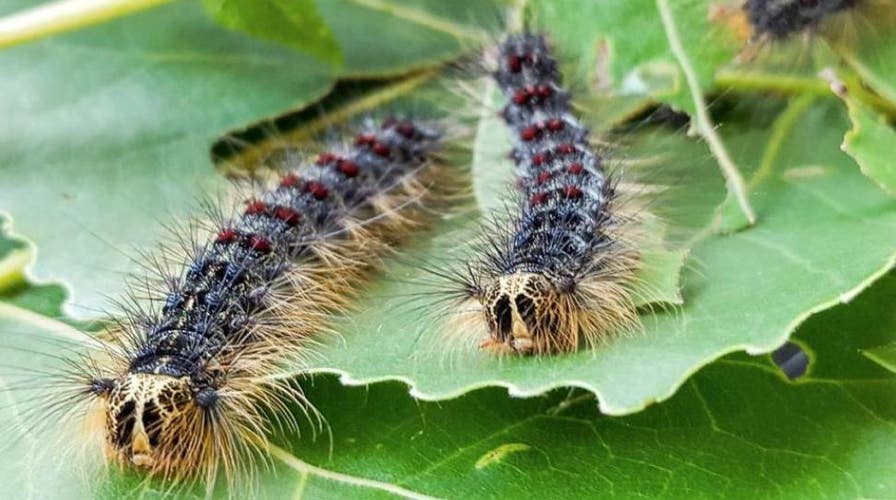Fox News Flash top headlines for May 13
Fox News Flash top headlines are here. Check out what's clicking on Foxnews.com.
As if 2020 needed to become more like a Hollywood disaster film, giant Asian gypsy moths are now something to possibly be worried about.
A species of gypsy moth that's native to Asia was recently spotted in Washington state, prompting Gov. Jay Inslee to issue an emergency proclamation, and federal officials are warning that the insects could pose a serious threat.
"This imminent danger of infestation seriously endangers the agricultural and horticultural industries of the state of Washington and seriously threatens the economic well-being and quality of life of state residents," Inslee said in a statement.
According to his proclamation, both gypsy moths from Asia and Asian-European hybrid gypsy moths threaten the state.
AMERICANS TURN TO DRUGS, ALCOHOL AS CORONAVIRUS STRESS RISES, STUDY SAYS
Hokkaido gypsy moths are exotic pests that can do widespread damage when hundreds of voracious caterpillars hatch, Karla Salp, a spokeswoman for the Washington Department of Agriculture, told UPI.

Voracious Asian giant gypsy moths, whose caterpillars can defoliate entire trees, have been discovered in Washington state, the governor announced. (Washington State Department of Agriculture)
Could the Hokkaido gypsy moth discovery in Washington state be the start of a nationwide invasion of the pesky pests? "Were it to become fully established and spread widely, it would affect forests and landscape trees and shrubs in the invaded range," University of Maryland entomologist Michael Raupp told USA Today.
RAPID CORONAVIRUS TEST USED AT WHITE HOUSES MISSES MANY COVID-19 CASES, NEW STUDY SAYS
"If established in the United States, Asian gypsy moths could cause serious, widespread damage to our country’s landscape and natural resources," the U.S. Department of Agriculture said in a published warning.
Nevertheless, this is not the first time these moths have appeared in America. According to the Department of Agriculture, one Asian subspecies has been detected and eradicated in the U.S. at least 20 times from 1991 to 2014 in locations on both the West and East coasts.
And fear about so-called murder hornets, which were first spotted in Washington state, has some people worried about the impact on essential bee populations. A man in Spain recently died after being stung by a murder hornet.










































